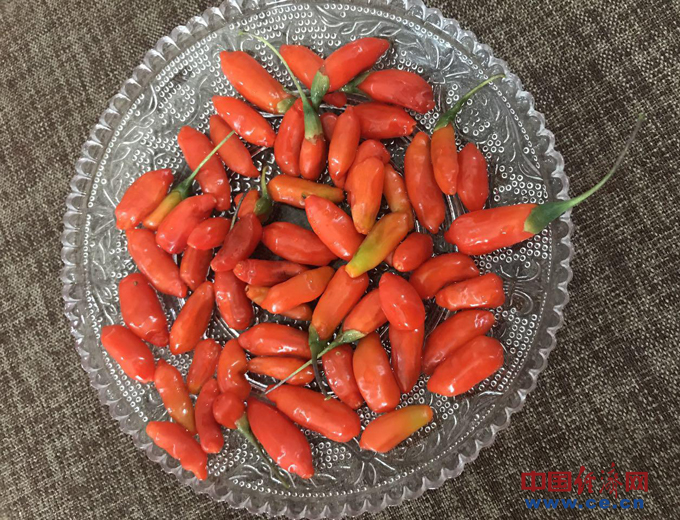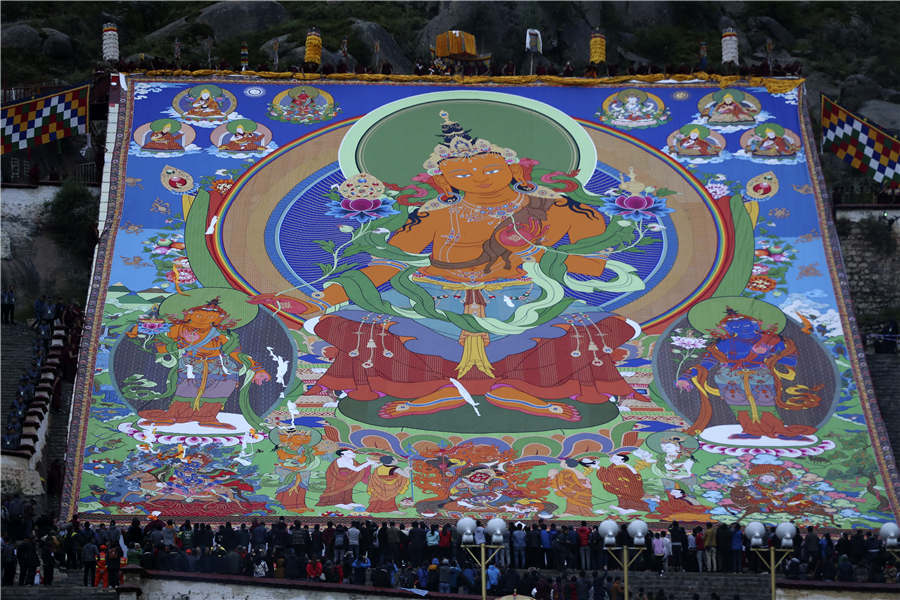Blue-sky thinking drives Tibet's organic industries
"While one kilogram of ordinary peaches only sells for about 30 yuan (4.5 U.S.dollars), the peaches here might make 100 yuan each," village official Sonam Yangkyi tells surprised visitors to Lhasa's Pure Land Industry demonstration zone.
The reason for such a high price for the winter peach is simply that Tibet Autonomous Region's high altitude and clean environment mean the peach is tastier and better than its competitors.
The winter peach is just one of the many varieties of fruit and other Pure Land Industry produce with premium quality and unique properties thanks to the pure water, soil and air there.
Lhasa began the Pure Land project in 2013. It includes maca, a root vegetable native to the South American Andes; snow chrysanthemum, used mainly for tea; grapes, roses, other organic produce, ingredients for Tibetan medicine, organic meat and dairy products.
In less than four years, 89 enterprises have got involved, with their output reaching 3.7 billion yuan.
Growing demand for organic products and Tibetan medicine has led to the Lhasa project being replicated in other areas.
Chamdo, a city in eastern Tibet, came up with the Blue Sky and Purity Industry this year, breeding Tibet chicken, pigs and growing medicinal plants.
Blue skies, pure snow mountain, along with clean air and water are the hallmarks of Tibet and the main engines for Tibet's sustainable growth.
Lhasa's Pure Land and Chamdo's Blue Sky have created jobs and raised the living standards of farmers.
The Pure Land demonstration zone in Quxu County has created 127,500 jobs while increasing per capita income by about 6,000 yuan last year.
The development of green industry has actually improved the environment instead of ruining it. Quxu has banned fertilizers and pesticides to protect the soil and guarantee that products meet organic standards. In Damxung County sustainable animal husbandry protects grassland from over-grazing.
"We are well aware of the importance of environmental protection. There is a price for all products, but a clean environment is priceless," said Sonam Yangkyi.
Your Comment
Name E-mailRelated News
-
;
-
-

-
Plateau wolfberries aim at high-end markets
A decrease in wolfberry plant diseases and insects combined with the pollution-free high plateau means the area is suitable to the development of wolfberry cultivation, and wolfberries can be chosen for high-end markets.
-
-
-

-
Lhasa celebrates Shoton Festival
Lhasa city, capital of Southwest China's Tibet autonomous region, began celebrating the annual Shoton Festival on Monday.
-
-
-

-
Ancient city of Lhasa welcomes the Yoghurt Festival
The ancient city of Lhasa will celebrate Shoton Festival from August 21 to 27.
-
Based in Lhasa, Tibet Vista is a Tibet travel agency that specialized in Tibet permit, and Tibet tours for both private and group travelers at a local price!
•4 Days Lhasa City Group Tour from USD 460 •8 Days Everest Base Camp Group Tour from USD 850 •15 Days Mt.Kailash Group Tour from USD 1780 •2016 Tibet Train Tours from Beijing, Shanghai, Chengdu, Xining,etc










